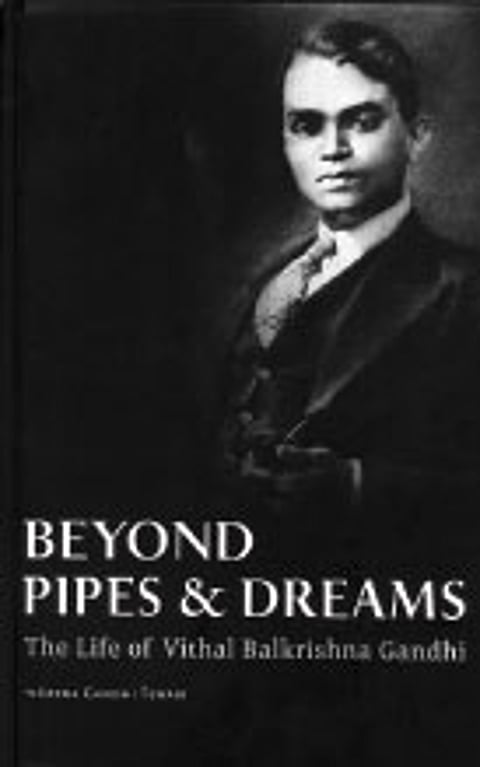

Beyond Pipes and Dreams is the biography of entrepreneur, economist, parliamentarian and politician, Vithal Balkrishna Gandhi, written by his granddaughter Leena Gandhi Tewari. The subject of the biography is someone, of whom relatively little is known in the public domain. His contributions to nation building were immense in the period after the country got its independence. He also had a role, albeit a minor one, in India’s freedom struggle. The book starts off with Vithal’s birth to an impoverished vegetable vendor in a rural part of Ratnagiri and charts his rise from there.
The book reads like an Ayn Rand novel where the protagonist forges his destiny by the dint of willpower, vision, ambition and skill, overcoming the odds thrown at him by harsh circumstances.
The book is meticulously researched with images of articles written by the young Vithal as a student editor, letters written by him to friends and relatives in their original, news paper clippings about Vithal, the documents which record his entry into the US and a paper pertaining to his admission in Columbia University. These act as mementos, strengthening the readers association of Vithal.
The author must have spent considerable effort in salvaging such documents, which when interspersed in the narrative, lend authenticity, and help form a more complete picture in the reader’s mind of the protagonist, his life and times. The author is an accomplished woman, being the chairperson of USV limited, one of India’s leading pharmaceutical companies.
Her writing is suitably good, using short terse sentences and giving a broader idea to the reader.
She also gives details of Vithal’s personal life and mentions the historical happenings during those times, which is an effective way to keep the reader engaged. Vithal’s life coincides with an epochal time: India’s struggle for independence, and the subsequent building of a nation.
Despite being an entrepreneur at heart, both these endeavours are central to the thrust of his energies.
The humble baniya is often derided in society as being measly and frugal. Capitalism is considered an evil in the same vein by many. But lives of people like Vithal who are baniyas at the core, are paradigms of how they are in reality trustees who safeguard communities, and are far from the stereotype of seeking profit at any cost. Vithal’s winning numerous elections to urban local bodies, contesting from areas with an overwhelming working class population and defeating the seasoned Communist leader Dange are testament to this.
Someone had rightly pointed out, ‘to maintain the austerity of Mahatma Gandhi, millions had to be spent.’
Vithal is among the invisible lot that spends, but hardly receive credit for their contributions.
Vithal’s service in the slums of Mumbai, when he was a college student, during the influenza pandemic, as well as during the Bombay docks explosion, which are shown in the book, reinforce this.
The biography is a coffee table book, which has numerous family pictures, helping the reader relate to the protagonist and his progeny at a deeper level.
Some of the chapters are dedicated to USV’s growth as a company and the major pharmaceutical player that it is today, which was achieved mostly due to the efforts of Arvind, Vithal’s son.
Though these portions of the book are inspiring, they lack the verve of Vithal’s life described earlier in the book.
The time of USV’s growth coincides with a period informally known as the ‘licence raj’.
Having a member of the family in a high government post immediately raises the doubt of having an unfair advantage in circumventing the red tape of the ‘licence raj’.
It is an ethical conundrum, but it might be better that we have such entrepreneurs who were able to turn the ‘licence raj’ to their favour and become the big men they are today, instead of perhaps having a scenario where a suffocating bureaucracy gave a level playing field, but stunted innovation, distributing failure and poverty equally.
The book is an extraordinary biography of a parliamentarian whose skills as an economist were used by Nehru in formulating important policies which impact the nation even today.